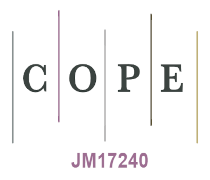Trudna miłość: płeć niepełnosprawnego dziecka a psychospołeczne funkcjonowanie jego matki
DOI:
https://doi.org/10.18778/1427-969X.14.05Słowa kluczowe:
motherhood, sex, disability, mental handicap, self-esteem, social anxiety, collective self-esteemAbstrakt
Motherhood is a special kind of love, that connects with the child’s sex. We would like to think, that the relationship is unconditional, but having a child relates to some consequences and causes some projections, expectations, isn’t neutral. What happens when a child – equipped in particular gender – has a mental disability? What are the mothers feelings, how does she behave, when she is a mother of handicapped boy or a girl? This work contains the results of researches of psychosocial function of 115 mothers of handicapped children. Relationships between sex, coping, collective self-esteem of mothers and their personal self-esteem, social anxiety, consciousness of stigma (stereotypisation) was analyzed in this study. Results revealed, that child’s sex is meaningful for the mother. Mothers of handicapped sons have more problems than girl’s mothers. They have lower level of personal self-esteem, higher social anxiety, they show strong identification with the category of disability, feel worse in groups, prefer avoiding ways of coping, their attitude to the child’s therapy is negative.
Bibliografia
Badinter E. (1998), Historia miłości macierzyńskiej, Volumen, Warszawa
Google Scholar
Brown R.P., Pinel E.C. (2003), Stigma on my mind: Individual differences in the experience of stereotype threat, „Journal of Experimental Social Psychology”, 39, 626–633
Google Scholar
DOI: https://doi.org/10.1016/S0022-1031(03)00039-8
Budrowska B. (2000), Macierzyństwo jako punkt zwrotny w życiu kobiety, Funna, Wrocław
Google Scholar
Dąbrowska M. (2005), Zjawisko wypalenia wśród matek dzieci niepełnosprawnych, Impuls, Kraków
Google Scholar
Daniels-Mohring D., Lambie R. (1993), Dysfunctional families of the student of special needs, „Fokus on Exeptional Children”, 25, 1–11
Google Scholar
DOI: https://doi.org/10.17161/foec.v25i5.7545
Endler N.S., Parker J.D.A. (1993), The multidimensional assesment of coping: Concepts, issues and measurement, [w:] G.L. Ven Heck, P.Bonaiuto, I.Deary, W. Nowack(red.), Personality Psychology in Europe, 4, University Press, Tilburg
Google Scholar
Frey K.S., Fewell R.F., Vadasy P.F. (1989), Parental adjustment and changes in child outcome among families of young handicapped children, „Topics in Early Childhood Special Education”, 8, 38–57
Google Scholar
DOI: https://doi.org/10.1177/027112148900800404
Grodzka M. (1995), Płacz bez łez. Listy rodziców dzieci autystycznych, Synapsis, Warszawa
Google Scholar
Heszen-Niejodek I. (1996), Stres i radzenie sobie – główne kontrowersje, [w:] I. Heszen-Niejodek, Z. Ratajczak (red.), Człowiek w sytuacji stresu, Problemy teoretyczne i metodologiczne, Wydawnictwa Uniwersytetu Śląskiego, Katowice
Google Scholar
Kościelska M. (1995), Oblicza upośledzenia, PWN, Warszawa
Google Scholar
Kruk-Lasocka J. (1994), Autyzm a oligofrenia, „Szkoła Specjalna”, 4, 195–200
Google Scholar
Kwiatkowska A. (1999), Tożsamość a społeczne kategoryzacje, WIP PAN, Warszawa
Google Scholar
Leary M., Kowalski R.M. (2002), Lęk społeczny, GWP, Gdańsk
Google Scholar
Luhtanen R., Crocker J. (1992), A collective self-esteem scale: Self-evaluation of one’s social identity, „Personality and Social Psychology Bulletin”, 18, 302–318
Google Scholar
DOI: https://doi.org/10.1177/0146167292183006
Masłowiecka A. (2006), Radzenie sobie ze stresem przez matki dzieci z upośledzeniem umysłowym, „Psychologia Rozwojowa”, 11, 1, 119–130
Google Scholar
Masłowiecka A. (2007), Dziecko niepełnosprawne intelektualnie, [w:] R.Piwowarski (red.), Dziecko – sukcesy i porażki, IBE, Warszawa
Google Scholar
Pilegge A.J., Holtz R. (997), The Effects of Social Identity on the Self-Set Goals and Task Performance of High and Low Self-Esteem, „Individuals. Organizational Behavior and Human Decision Processes”, 70, 17–26
Google Scholar
DOI: https://doi.org/10.1006/obhd.1997.2689
Pisula E. (1998), Psychologiczne problemy rodziców dzieci z zaburzeniami rozwoju, Wydawnictwa Uniwersytetu Warszawskiego, Warszawa
Google Scholar
Pisula E. (2003), Autyzm i przywiązanie, GWP, Gdańsk
Google Scholar
Sekułowicz M. (2000), Matki dzieci niepełnosprawnych wobec problemów życiowych, Wydawnictwo Uniwersytetu Wrocławskiego, Wrocław
Google Scholar
Wrześniewski K. (1996), Style a strategie radzenia sobie. Problemy pomiaru, Instytut Psychologii PAN, Warszawa
Google Scholar
Pobrania
Opublikowane
Jak cytować
Numer
Dział
Licencja

Utwór dostępny jest na licencji Creative Commons Uznanie autorstwa – Użycie niekomercyjne – Bez utworów zależnych 4.0 Międzynarodowe.








